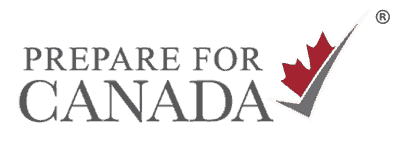BANKING & FINANCE
Move to Canada | Transferring cash & valuables
by | Oct 15, 2024

When you move to Canada, there are many things to consider, and the process can be quite long. One of the biggest things you need to consider is how to transfer your money and belongings to Canada quickly and cost-effectively. Fortunately, you have many options when it comes to transferring money and belongings to your new home in Canada.
Transferring your money before you move to Canada
Before you move to Canada, you must find a safe and easy way to transfer your money. Fortunately, there are many ways you can transfer money from your home country before you move to Canada.
Should you open a bank account in Canada before you move?
When moving to Canada, you will have to make an important decision; should I open a Canadian bank account before I move or after I move to Canada? This decision will determine how effectively you can handle your finances once you move to Canada.
Opening a bank account with a Canadian bank before you move is possible, though you need to know how to do it. However, it is usually better to open an account with a Canadian bank before you arrive than waiting until after you land. Opening a Canadian bank account before you move to Canada will make it easier to:
- Transfer your money to Canada before you move
- Show proof of funds when you arrive in Canada, and
- Focus your attention on other important activities, such as getting a job.
Some people prefer to open a Canadian bank account after they arrive. However, opening a Canadian bank account from outside Canada requires more documents and can be a little stressful. Some people prefer to open an account when they can talk to a professional face to face rather than completing the process online. If this sounds like you, then you can wait until after you arrive to open your Canadian bank account. Just remember that it’s possible to open a Canadian bank account before you move and many newcomers have done it in the past.
Now let’s look at some common ways to transfer your money to Canada.
1. Wire transfer
Wire transfer is one of the easiest and simplest ways to transfer your money to Canada. However, you can only do this if you have already opened a bank account in Canada before you move to Canada. And with a Canadian bank account, you can simply send a wire transfer from your current bank account to your Canadian bank account.
It’s a good idea to open a bank account with one of the larger Canadian banks. This is simply because larger Canadian banks have branches all across Canada so they are easily accessible and efficient. The larger banks also usually offer better customer service. Here is a list of some of the larger banks in Canada:
- Bank of Nova Scotia (ScotiaBank)
- Toronto-Dominion Bank (TD)
- Canadian Imperial Bank of Commerce (CIBC)
- Royal Bank of Canada (RBC
- Bank of Montreal (BMO)
After you open a Canadian bank account, you can send a wire transfer to your Canadian account. Once you arrive in Canada, you can easily access your funds from your Canadian bank account.
2. International money order
An international money order is one of the most common ways to transfer your money from your country of origin to Canada. It is a good option if you decide to open a Canadian bank account after you move to Canada. You will need to get an international money order from your current bank in your country of origin before you move to Canada.
When you arrive in Canada, you will need to open a bank account and deposit the money order to your Canadian bank. Most international money orders have a maximum limit of $1,000 per order. This means that you will have to buy multiple orders to deposit all your money in a Canadian bank.
This method of transferring your money is usually safer than carrying cash. This is because money orders are paper documents and only a few of them can be worth a lot of money. You will not have to carry a lot of these documents and unlike cash, they will fit into a small space.
It is important to note that you will not be able to use your money right away. Once you have deposited the money order into your Canadian bank, you will have to wait for some time before you can access your money. The wait time will vary depending on the bank, so ask your bank when you can access your money.
3. Cash
Cash is another option, though it may not be the safest way to transfer money to Canada. It might be a little hard to travel with all of your life savings. However, if you feel comfortable with carrying all your money as you move, Canada will allow you to do this.
Keep in mind that you will have to declare the amount of money you are carrying to the Canadian Border Services Agency (CBSA). You will only need to declare it if that money is valued at more than $10,000 in Canadian dollars. This money could already be in CAD or it could be foreign currency. This step is important to ensure that no illegal money is transferred into Canada.
If you are carrying more than CAD $10,000 and do not declare it, the CBSA has the authority to seize your money. You may have to pay a penalty of anywhere from CAD $250 to $5,000 to retrieve your money from the CBSA.
If you’re bringing a large amount of money with you, cash is not the best way to bring money into Canada. Cash can be hard to handle when there is a lot of it and there is always a chance of the money getting stolen.
Arrive in Canada Financially Prepared
Building a strong financial foundation is vital to your success. Join this webinar to start your banking journey in Canada on the right foot!

Bringing your jewelry and valuables when moving to Canada
Most of the jewelry and valuables you bring to Canada when you are moving are duty-free. This means you will not have to pay any taxes on those items. There are some items that you might have to pay duty on. For example, you will have to pay duty on new items or items that still have tags on them.
Generally, you do not have to pay duty on any goods you bring when you move to Canada. However, once you have moved to Canada and are bringing back any valuables from abroad, those goods may be subject to duty. You will also need jewelry appraisal reports from a recognized Canadian jeweller for any jewelry you are carrying.
Bringing your personal items when moving to Canada
Canada will allow you to bring almost all of your personal belongings and items duty-free. Things such as silverware, pots and pans, and any other household items are duty-free. However, any new items that still have a tag on them are subject to duty so keep that in mind. Alcohol and tobacco are also subject to duty if you bring them in large amounts.
There are some goods that you are restricted to bring into Canada. These goods include weapons and firearms, fireworks, ammunition, and explosives. You are not allowed to bring any of these goods into Canada.
You can check out this comprehensive article by the Government of Canada to learn more about what you can bring to Canada and if it is subject to duty.
Deciding what to move to Canada
Ideally, you don’t want to ship more than you have to since the cost of shipping is based on volume. You may decide that it’s less expensive to buy what you need when you arrive in Canada. You can always check out cost of furniture and other items you may need in Canada online and compare it to the cost of shipping. If replacement costs are higher, than shipping makes sense. You’ll also avoid the stress of shopping when you arrive. Another benefit of shipping your goods is that your have your familiar belongings from home.
Shipping your belongings to Canada
If you have more goods than you can carry with you while travelling, you can ship your goods before you move to Canada. There are many options to ship your goods to Canada, some are considerably more expensive than others.
Shipping by air or by sea
There are two ways you can ship your goods to Canada: by sea and by air. Shipping by sea is cheaper than shipping by air but it is not as convenient. Firstly, shipping by sea can take a lot of time. You will have to ship all your goods a good while before your move to Canada so you can access them when you arrive. You may not want to do that if you need those goods until you move. Once your goods have arrived in Canada, you will have to pick them up from a warehouse. The goods will not be delivered to your house.
Your other option is to ship by air. As you may have guessed, shipping by air is a lot more expensive than shipping by sea. However, shipping by air is pretty fast. You will have the comfort of waiting until your move and then shipping the goods to Canada. But just like shipping your goods by sea, you will have to pick up your goods at a warehouse, or further pay a moving company to deliver the goods to your home in Canada.
So to summarize, shipping by sea is a good choice if you want to save money or ship a large number of your personal belongings. However, you’ll have to wait longer for your goods to arrive. Shipping by air might be a better option if you’re only shipping a few items to Canada. In the end, make sure to carry any essential items with you when you travel so you can access them when you arrive. Just ensure you do not exceed the weight and size restrictions your airline will allow.
10 questions to ask every moving company

Hiring a professional moving company for your move to Canada can help you understand what to ship, its costs, and most importantly the shipping and customs regulations. However, it’s vital to carefully evaluate the company that you select to move your valuable belongings. To assess potential movers, be sure to ask these important questions:
- How long has your company been in the relocation industry?
2. Can you provide references?
3. What licensing and insurance can you provide?
4. What type of estimates do you require?
5. How do you charge for moves?
6. How will you protect my home?
7. How will you protect my belongings?
8. Do you have workers’ compensation insurance?
9. What is your claim process?
10. When will my shipment arrive?
Other options when shipping your goods
There is another cheaper alternative to storing your goods in a warehouse for pickup. If you have a friend or relative in the Canadian city you are moving to, they might be able to help you. If you do not have too many goods you are shipping, you can ship the goods to their home in Canada. Once you arrive in Canada, you can pick up your goods from their home. This will help you save money you would have had to pay to store your goods in Canada.
Insuring your belongings
When shipping your household belongings to Canada, you want them to arrive safely and without damage. Unfortunately, contents can be damaged during shipping. But if your goods are not insured, you cannot claim damages. It is understood that if you’re paying to ship bulky items to Canada, then their value must be high. Therefore it’s crucial to pay for insurance to ensure the safety of your belongings and give you peace of mind.
Usually, it is better to consider the cost of insurance as part of the shipping costs. This leaves you with no option but to pay for the insurance as well, which is a good choice by all means. To determine and prioritize your budget for the insurance, always make a comprehensive list of what you are shipping and how much it would cost if you have to replace it all in Canada.
For more information about your financial first steps in Canada, visit our banking in Canada resource page. Get the essential information you need to manage your finances in Canada!
Related articles
Read more about your financial first steps in Canada.





